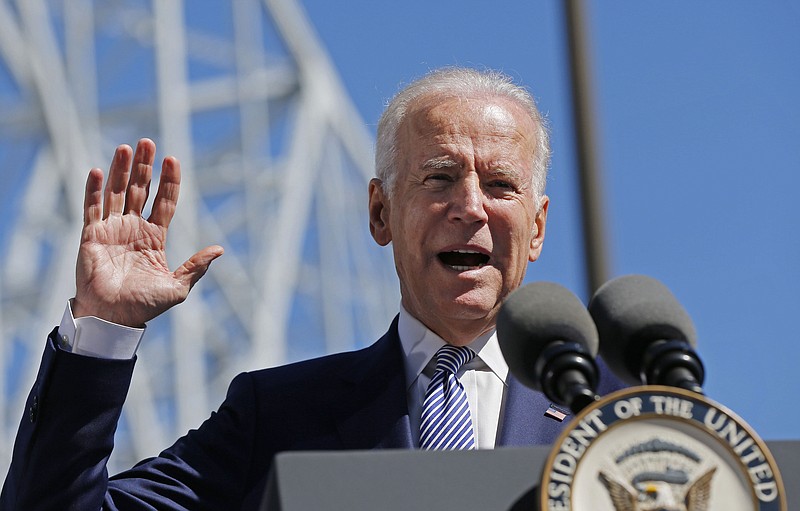Add United States Vice President Joe Biden to the chorus of those who believe the Senate shouldn't take up the Supreme Court appointment of a president in an election year.
That was his opinion, at least, in 1992 when a Republican was president and rumor had it that a justice or two might step down.
The shoe is on the other foot now with a Democrat president in office during an election year and with an opening on the Court. Some Republicans have said the GOP-led Senate should not schedule hearings until after the presidential election on a promised appointment to replace conservative Justice Antonin Scalia by President Obama.
They're right, but let the vice president make the point.
"It is my view," the then-Sen. Biden, D-Del., said, addressing the Senate for 90 minutes on the subject, "that if a Supreme Court justice resigns tomorrow or in the next several weeks or resigns at the end of the summer, President [George H.W.] Bush should consider following the practice of a majority of his predecessors and not - and not - name a nominee until after the November election is completed."
The august body of which he is a member, he went on, would have to carefully consider how it would respond if such a breach of recent protocol would occur. And, making a preliminary strike, he said, the Senate Judiciary Committee of which he was chairman should seriously consider not scheduling confirmation hearings on a nomination until the presidential election season was over.
"I'm sure, Mr. President, after having uttered these words, some, some will criticize such a decision and say it was nothing more than an attempt to save a seat on the Court in hopes that a Democrat will be permitted to fill it," Biden said, aghast that anyone might think a thing about such a fine public servant. "But that would not be our intention, Mr. President."
Such a decision, he said "is what is fair to the nominee and essential to the process. Otherwise, it seems to me, Mr. President, we will be in deep trouble as an institution."
Sen. Charles Schumer, D-N.Y., made a similar statement during the summer of 2007 when the unpopular war in Iraq was dragging down President George W. Bush's popularity and 2008 presidential politics already were heating up.
"We should not confirm any Bush nominee to the Supreme Court, except in extraordinary circumstances," he said.
No justice resigned in 1992, so the Democrat-controlled Senate never had to put Biden's suggestion to test, and no justice resigned in 2007, so Schumer's demand could not be tried out. But can anyone doubt what either would have done had the circumstances called for it?
Republicans should enjoy the irony, hold out and take their best shot in 2017.
